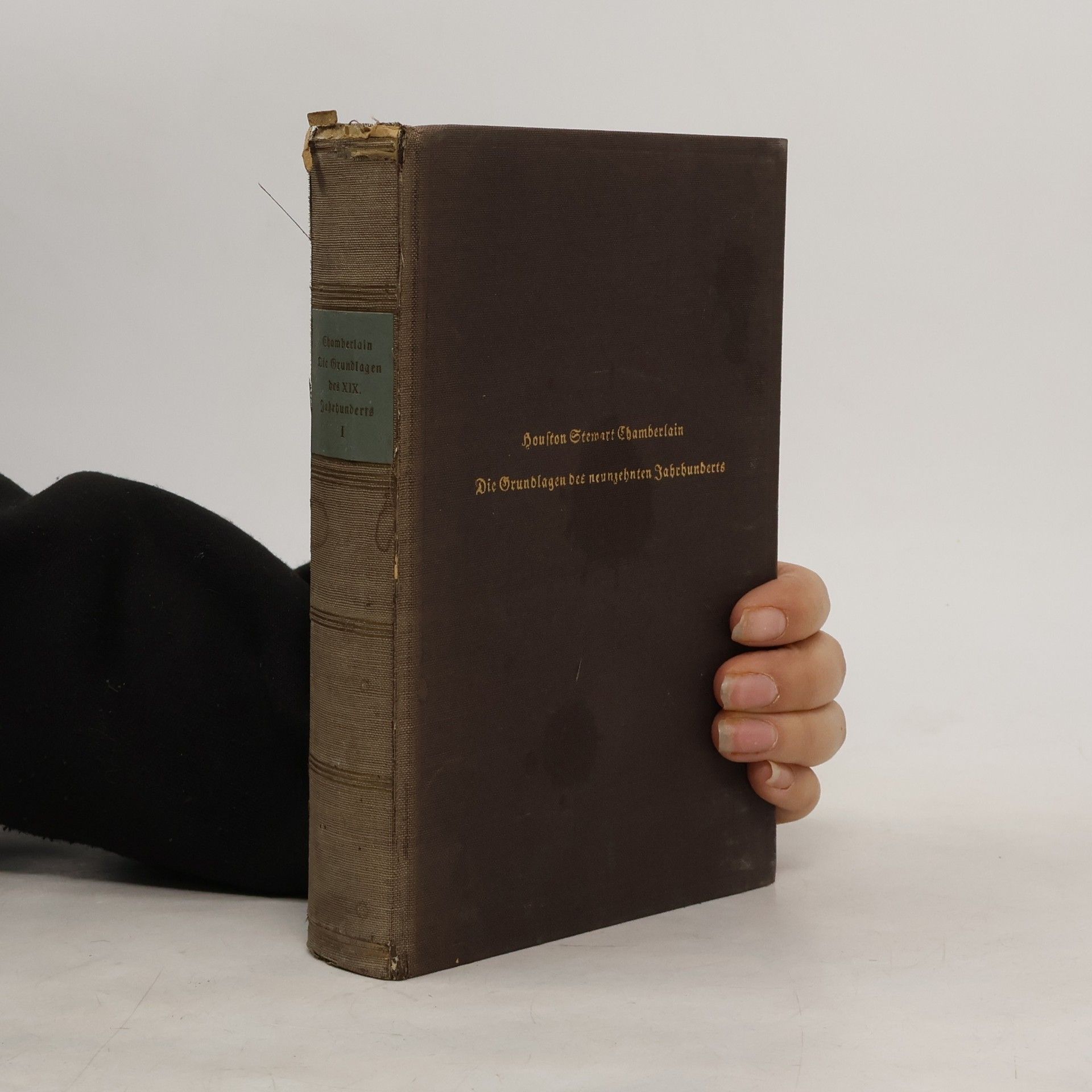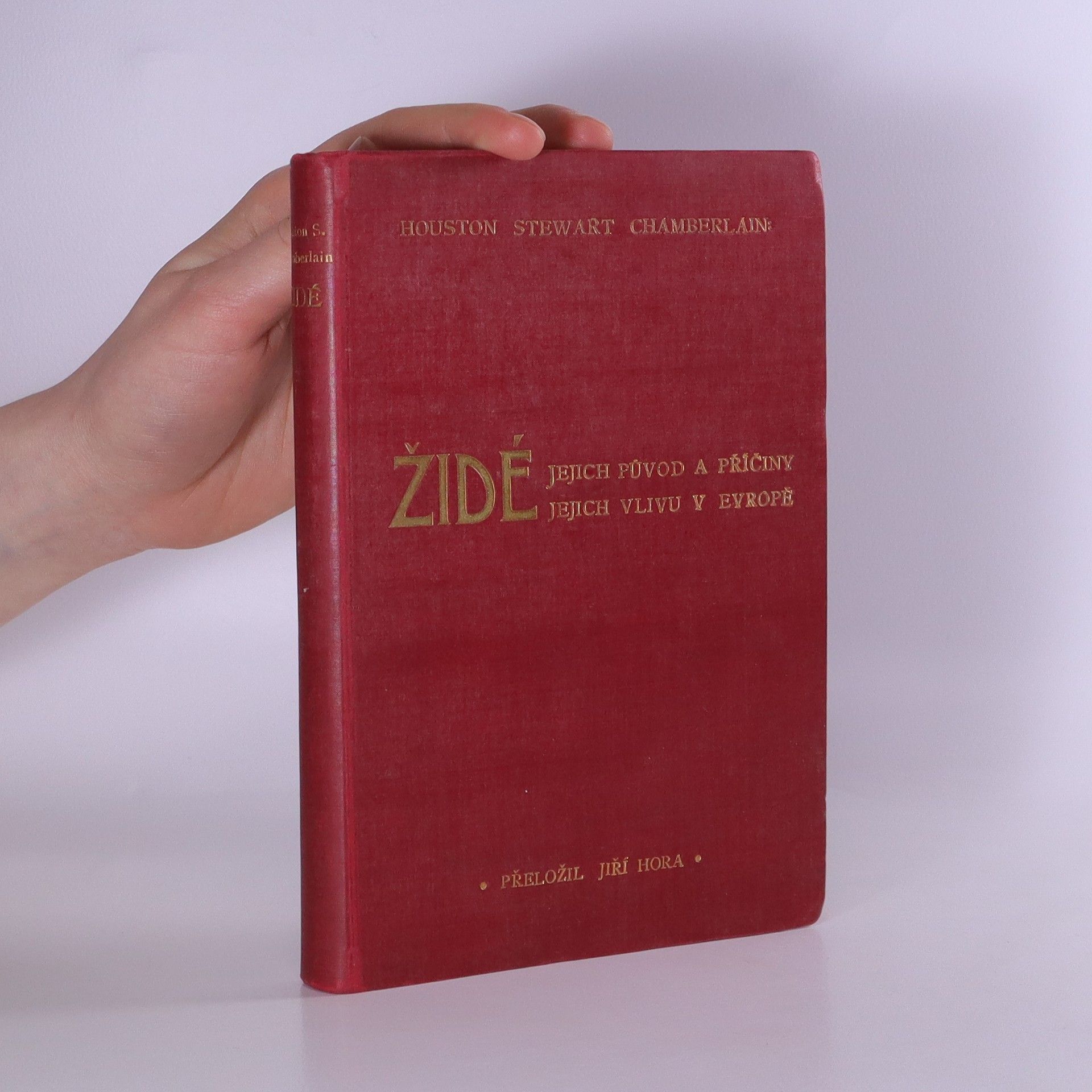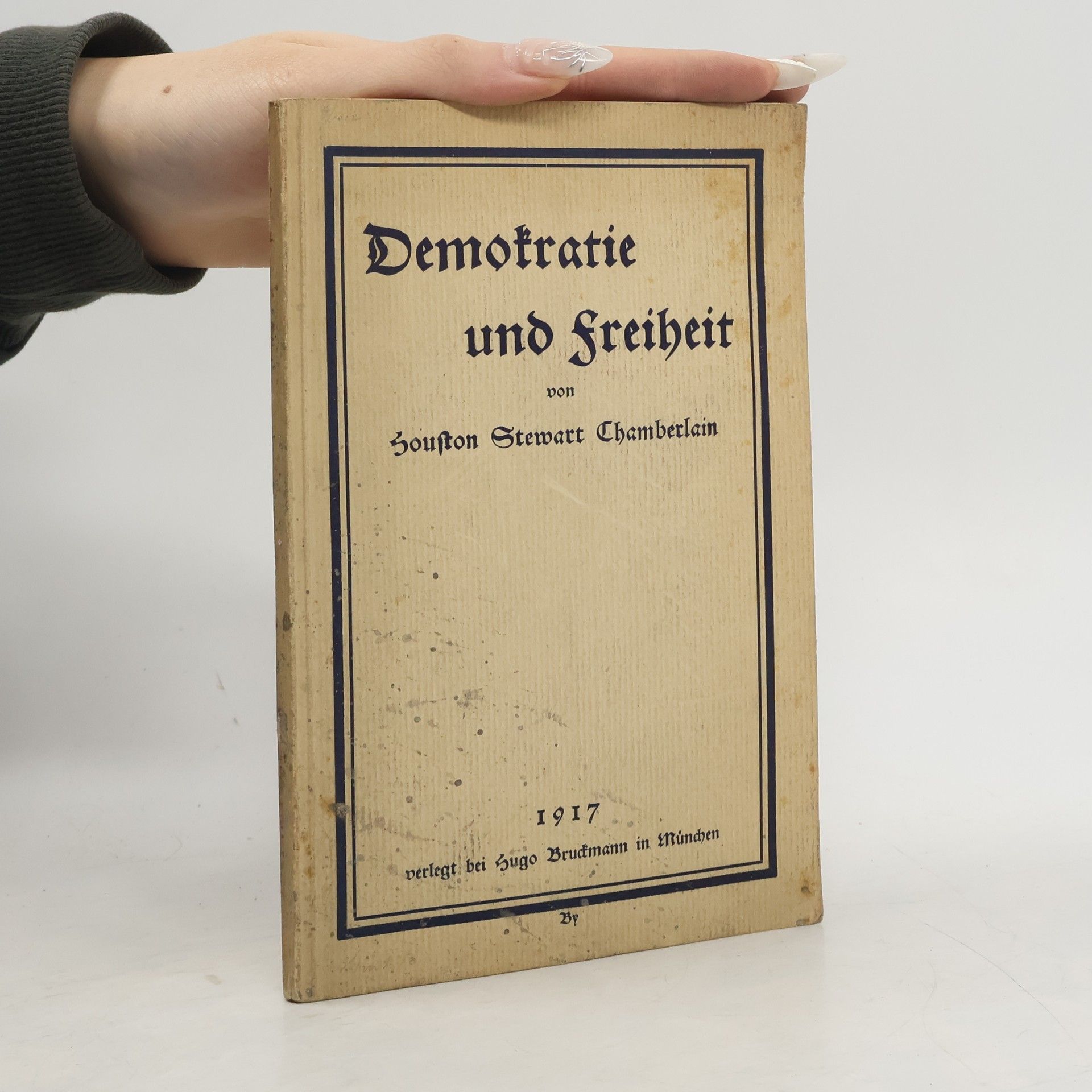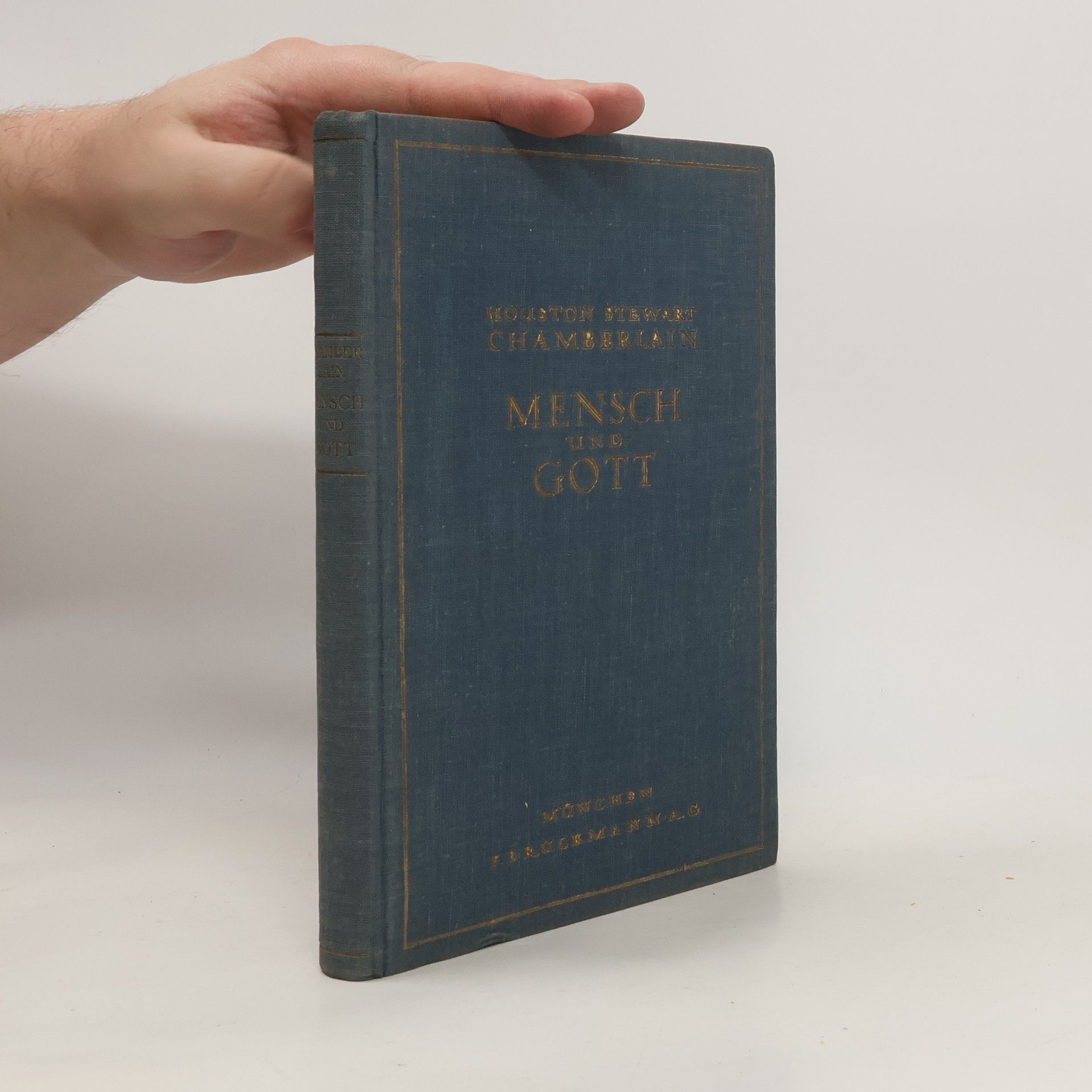Chamberlainovy práce se zaměřovaly na prokázání, že germánský lid je dědicem antických říší Řecka a Říma, a že germánské kmeny, které zničily Římskou říši, zachránily západní civilizaci před nadvládou Židů a jiných neárijských ras. Jeho myšlenky byly ovlivněny Arthur de Gobineauem, který usiloval o prokázání nadřazenosti árijské rasy. Chamberlain definoval árijskou rasu jako abstraktní ideál rasové elity, představující nejvyšší stupeň lidského vývoje, který byl však deformován míšením s podřadnými rasami. Vycházel z poznatků o Galilejcích a dospěl k závěru, že Ježíš, ač Žid vírou, nebyl Žid původem, ale árijec. Podporoval také teorii Hannse Hörbigera o sněhu pokrývajícím většinu těles v naší sluneční soustavě. Jeho práce se staly populární v Evropě, především v Německu, a měl významný vliv na německé nacionální hnutí a nacismus. Chamberlain psal svá díla v němčině a během první světové války publikoval propagandistické texty proti své rodné zemi. V roce 1916 se stal německým občanem. Jeho myšlenky inspirovaly rasistické myšlení Adolfa Hitlera, i když není doloženo, že by Chamberlainova díla četl.
Houston Stewart Chamberlain Knihy
9. september 1855 – 9. január 1927







Mensch und Gott
Betrachtungen Uber Religion Und Christenthum



